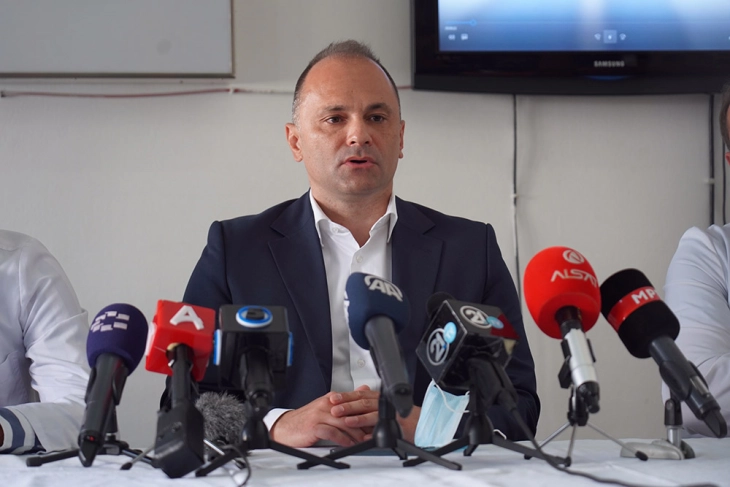Filipche: North Macedonia sees rise in new cases but situation is stable, possible restrictions for unvaccinated people in fall
- Post By Nevenka Nikolik
- 16:44, 30 July, 2021

Skopje, 30 July 2021 (MIA) – North Macedonia is seeing a rise in new COVID-19 cases in Skopje, Kumanovo, Tetovo, Gostivar and Kichevo, but there’s no room for panic. The situation is stable, there aren’t many patients treated in hospitals, the vaccination is going well and that’s where the focus is. We’re mulling over restrictions in the fall, following the example of some other countries, and until then we’re monitoring the situation, Health Minister Venko Filipche told Kanal 5 TV.
According to him, some forms of restrictions or controls in terms of requirement for COVID-19 tests at border crossings, should not be imposed. As regards hopes to achieve herd immunity by the end of the summer, Filipche said it’s very important that as many citizens as possible get vaccinated.
“By the end of August, if the current pace of vaccination continues, the total number of vaccinated population will reach 40 percent. We don’t know if this pace will continue, but it is not enough. A much larger number of citizens need to apply for vaccination, to contact the vaccination sites in order to achieve the herd immunity,” Filipche said.
He stressed that the situation is being monitored daily, including analyzing the number of COVID-19 patients, as well as epidemiological survey data.
In terms of the vaccination, he pointed out that about 510,000 citizens have been vaccinated, of whom 381,000 have been fully vaccinated.
“About 63 percent of the population over 70 has been vaccinated. With the citizens over 50, this is 45 percent, and the percentage continues to drop with the lower age groups, and that’s where our focus is. Some 58 percent of employees in the education sector are vaccinated, about 60 percent in preschools. We’re paying serious attention to those two sectors. We’ve worked in the past few days with the Ministry of Education and the Ministry of Labor and Social Policy to once again call on the employees to get vaccinated in large numbers, because that’s the only way to change the epidemic image,” Filipche pointed out.
Asked whether restrictions will be imposed, he said some form of restriction is being mulled for the fall when there will be additional risk factors as people will be spending more time indoors, and return from their summer vacations.
“We’re mulling over restrictions following the example of some other countries, including restrictions to entry in indoor areas in terms of mandatory requirement for vaccination certificate. Until then we’re monitoring the situation. We’ll certainly impose some form of restriction, even in the coming period if we see the need for that and if it can somehow stabilize the situation. These measures will be in place for the unvaccinated people. Some measures will probably continue to be in place, including wearing facemasks indoors. It’s true that people who are vaccinated can also contract the virus, but the vaccine protects against a severe form of the disease and significantly reduces the risk of death, and that’s the point. In the next period of probably a year or two, we will live with the virus. It will be here. It’s very likely that yet another mutation will emerge, but that doesn’t mean that we will live or should live with restrictions. It’s important that citizens get vaccinated in large numbers,” said Filipche.
He added that campaigns to raise vaccination awareness continue.







